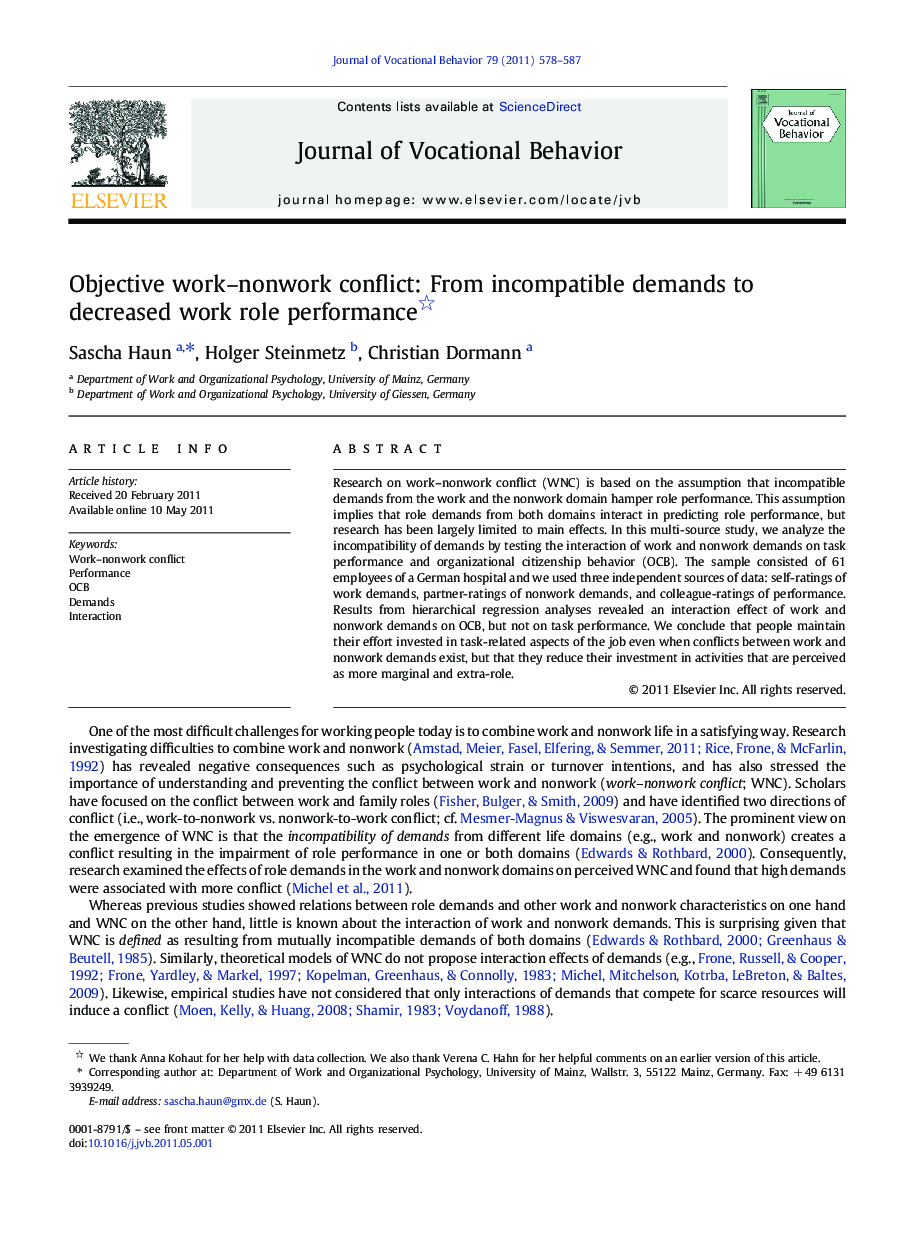| کد مقاله | کد نشریه | سال انتشار | مقاله انگلیسی | نسخه تمام متن |
|---|---|---|---|---|
| 887195 | 913166 | 2011 | 10 صفحه PDF | دانلود رایگان |

Research on work–nonwork conflict (WNC) is based on the assumption that incompatible demands from the work and the nonwork domain hamper role performance. This assumption implies that role demands from both domains interact in predicting role performance, but research has been largely limited to main effects. In this multi-source study, we analyze the incompatibility of demands by testing the interaction of work and nonwork demands on task performance and organizational citizenship behavior (OCB). The sample consisted of 61 employees of a German hospital and we used three independent sources of data: self-ratings of work demands, partner-ratings of nonwork demands, and colleague-ratings of performance. Results from hierarchical regression analyses revealed an interaction effect of work and nonwork demands on OCB, but not on task performance. We conclude that people maintain their effort invested in task-related aspects of the job even when conflicts between work and nonwork demands exist, but that they reduce their investment in activities that are perceived as more marginal and extra-role.
► We present an objective approach to work–nonwork conflict.
► Different data sources for work demands, nonwork demands, and work role performance.
► Interaction of high work and nonwork demands related to decreased OCB.
► Task performance not affected by interaction between high work and nonwork demands.
► People under pressure from work and nonwork concentrate on core tasks at work.
Journal: Journal of Vocational Behavior - Volume 79, Issue 2, October 2011, Pages 578–587